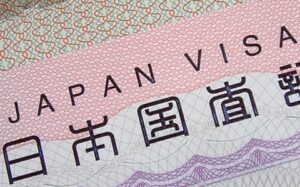Looking for part-time jobs in Japan can be very challenging but could also mean a rewarding experience. Despite the fact of the language barrier, work culture, new environment are different from you get used to, learning new skills could open a new door of opportunity in the future.
Besides, getting paid hourly from working on temporary jobs could significantly help you sustain your finances while living in the country. As we all know, Japan’s cost of living is no Joke, far too high compared to its neighboring countries. That is why many local and foreign residents consider part-time work as an option.
Estimated to 75% of those who hold student visas are having part-time jobs. It could help them support other expenses while studying abroad in Japan. Apart from international students, those working holiday visa and dependent visa holders can also work part-time for not more than 28 hours per week.
There are several jobs from different industries you can apply to in Japan. Some of them will not check your educational background or ask for related working experience. But having no idea where to start could hinder your job-finding journey and the chance of landing on a job.
This post will provide a step-by-step guide to help you get a part-time job in Japan, from knowing your eligibility to work down to learning how to apply using the list of job sites and the yellow-covered TownWork magazine. Let’s make your job-hunting a successful one. Read on!
Table of Contents
Steps to Get a Part-Time Job in Japan
First Step: Check your eligibility to work as a PART-TIMER
Determining your work eligibility comes first. If you plan to study or work in Japan or when you already made it inJapan, it is necessary to confirm if the visa that you hold allows you to work to get a part-time position. Check the following requirement to understand if you are eligible to get part-time jobs.
1. You must have any of the following visas.

- Student Visa
With your student visa, you can work part-time up to 28 hours per week, providing such permission to engage in some activities is granted to you by the Japanese government. But you should pay attention to the type of job that you will be applying for. Accepting jobs associated with illegal activities or are prohibited and exceeding the legally permitted hours could result in deportation. On the other hand, you can work for up to 40 hours during holidays. The purpose of the permission to work part-time is to support your study and living expenses and not a remittance to your family. - Working Visa
Did you know that with your working visa, you can also engage in part-time jobs? Unlike getting full-time jobs, part-time jobs do not require a college degree or higher Japanese language skills. Some jobs do not require Japanese skills or other skills.
Below is the list of visas that can work part-time in Japan.
-
- Professor
- Artist
- Religious activities
- Journalist
- Business manager
- Legal/Accounting services
- Medical services
- Researcher
- Instructor
- Engineer/Specialist in humanities/International services
- Intra-company transferee
- Entertainer
- Skilled labor
- Technical intern training
- Other visa categories
- Highly skilled professional visa
- Working holiday visa
- Specified visa
2. You must have the other required documents.
- Japanese Language certificate (if any, non-compulsory)
- Residence card
- Permission to work (Permit to Engage in Activity other than that Permitted by the Status of Residence Previously Granted or Shikakugai Katsudo Kyoka) in the case of the student visa.
Documents needed for the application of the working permit:
- Permission to Engage in Activity Other than that Permitted by the Status of Residence Previously Granted application form (Available at the Immigration Bureau).
- A document containing activities related (e.g., employment plan certificate prepared by the part-time job employer).
- Residence card
- Passport or Certificate of Eligibility for Residence Status
- Identification Card (e.g., student ID)
Second Step: Check some important factors before getting a part-time job.
Another account you should take into consideration before taking part-time is to check some important factors. Have your own checklist to help you determine if the job is right for you. Here are some you should check.

✔Check the job location
The location of the job is one of the main factors you need to consider before getting part-time employment. It is way more convenient and practical if you’re working near your school or accommodation. Imagine the time you will consume if you take a job located distant from your accommodation. As a result, you struggle to manage your time for your study or extra time for yourself. You don’t let this happen to you, so it is better to choose wisely the location of the work before deciding to take it.
✔Check the qualifications for the job
Why do you need to check for the qualifications? There are important reasons you need to consider, such as some companies do not employ foreign workers, and others do not hire those holding a student visa. Also, it is necessary to check the level of Japanese skills required and other specified skills before you apply for the job.
✔Check the salary
Knowing the minimum salary granted by the law in the prefecture where you will be working will actually matter, so you will not end up under-compensated. For example, the minimum wage in Tokyo is 874 JPY per hour, while in Nagano is 821 JPY per hour. Therefore, it is essential to know such information before deciding to apply or to take the job. You can refer to the table below – the estimation of per hour salary for some part-time jobs in Tokyo prefecture.
| Part-time Job | Rate Per Hour |
| convenience store staff (day shift) convenience store staff (night shift) delivery driver company receptionist English Teacher Restaurant staff Tour guide |
from 850 JPY from 1200 JPY from 1,000 JPY 1,000 JPY to 1,500 JPY 1,000 JPY to 2,000 JPY from 1,000 JPY from 1,000 JPY |
✔Check the types of jobs that will suit you.
In analyzing the type of job that is right for you, you should acknowledge how capable you are of the job. For example, if you’re fluent in English and capable of doing tutorial jobs, then you should reconsider getting it knowing that this job is currently in-demand in the country.
On the other hand, if you prefer jobs that do not require special skills and or prior experiences, then positions in the restaurant and cafe industries might be suitable for you. You may also search for no Japanese required jobs, such as building cleaning, or dishwashing jobs, or kitchen assistant jobs. But if you want to enhance your language skills and acquire new skills, then you may consider working in construction industries or as a factory worker or as a salesman.
✔Check the working schedule.
Before getting the job, you should carefully check the checking-in and checking-out time, or the job offers flexible time. Doing such is very important in order to avoid overlapping or matching with other schedules. Especially if you’re a college or university student, avoid choosing jobs that will cause you to be late at school or worst not attending class at all. In such cases, you can talk with your employer about your schedule.
Some prefer to work night shifts like in convenience stores, or other food chains, where they can earn extra than working in the daytime.
✔Check the perks
Perks or benefits offered in a company can be a big help for those working part-time, particularly students. If you will work in a restaurant or a cafe the usual perks are free uniform and free meals. On the other hand, the factory worker gets free uniforms and a minimum of 1,000 JPY for the transportation allowance.
Third Step: Know the popular part-time jobs near you
Why you have to look for job opportunities outside the city if jobs are just available near you? Parallel to what have mentioned earlier that taking part-time jobs near your accommodation or school saves a lot of your time and money. But you might think of those jobs nearby do not resemble your job experience. Instead of thinking that way, you should start to value your soft skills or your personal attributes, such as your eagerness to learn new things, flexibility, self-motivation, etc. Remember, some companies are looking for these personality traits for their candidates.
However, you should avoid being presumptuous to apply on jobs that in the first place you are not qualified for, such as jobs requiring a higher level of Japanese. Don’t forget to check some important factors that include job qualifications, as discussed in the second step.
Listing down your skillset will help you determine what type of jobs you are going to apply, then match it to the part-time jobs available near your location. Where to check for job listings? The next subtitle, which is the final step of getting a part-time job, will answer that question.
Below are popular part-time jobs based on the required Japanese level, which could also be available near your location.

- No Japanese skills required
If you’re a newcomer in Japan, then these jobs are perfect for you for it won’t require you to speak in Japanese. There are plenty of opportunities even though you are not fluent in Japanese as long as you have other useful skills. Some may be posted vacancy outside the building where you can apply instantly as long as you bring your resume and other requirements with you.
Examples:
Cafe, bar, hotel, restaurant staff
Movers, these people help you move stuff on trucks.
English teacher (some require Japanese skills) - Beginner Japanese Skill Level
These jobs do not require you to talk fluently in Japanese, beginner, or conversational level of Japanese only such us working in a factory, supermarket or store staff, restaurant staff, and more. - Fluent Japanese Skill Level
Your proficiency in Japanese can be your stepping-stone to teach English in Japanese schools or even working in some local Japanese organizations of the government such as Information Technology, English Teacher, Investment Banking, and Engineering.
Fourth and Final Step: Start looking for a part-time job or arubaito.
This final step will help you search for a job in Japan. Finding a job is not an easy thing to do. However, knowing where to begin with and the tools to utilize will make your job-hunting journey a lot easier. Here are the ways how to find part-time jobs.
1. Check part-time jobs at FAIR Work in Japan
You can start finding part-time jobs with FAIR Inc. The company started in 2018 as a recruitment agency that provides help for foreign nationals who wish to work or study abroad in Japan. Spreading help to non-locals particularly those visa holders is part of the company’s main goal which is to give fair treatment and service to every nationality.
Here’s how you can check jobs from Fair Inc.
-
- Check the newly posted jobs on Fair Inc. Facebook Page here.
To apply for a job click the ‘apply’ button or follow the page if you want to be updated with the current job postings.
-
- Visit their website here.
You can choose from occupation categories on the main page and click to see the list of available jobs in Japan. Watch the video below for a quick guide.
2. Searching jobs using the TownWork Magazine

The TownWork magazines provide the latest job announcement in Japan which are available in any Conbini or Convenience Stores for free. There are two types of TownWork that can easily be identified by each different cover. If you are looking for full-time jobs, then the blue-covered magazine is right for you. However, if you want to know the latest part-time jobs, then pick the one that has a yellow cover. Both of these magazines provide a lot of useful information including resume writing, preparation for interviews, how to quit, latest article and more which will guide you in looking for part-time jobs as well as full-time. Since the magazines are popular for job seekers in Japan, that is why most of the jobs listed on it filled very quickly.
3. Utilize the TownWork website
The website has numerous job categories in the different regions of Japan, so you can be able to search for the jobs that are available near you. Unlike TownWork magazines, checking its website is way more convenient, which means going to any convenience stores to get a hard copy is not necessary anymore. You can only use your computer or even your smartphones when looking for jobs.
4. Download the TownWork app on your cell phone
The TownWork job search application is downloadable both on IOS and Android, and very easy to use. You have to turn on your GPS first so that the TownWork app will show various jobs that are available near your location. To learn how to download it, then follow the instructions below?
How to download?First, type ‘Town work’ on the search box in the Google Play Store or App Store. Then, install and open the app. Once you open the app, you can now search for your desired job, working methods, salaries, and qualifications. |
Other Job sites:
From A navi: http://froma.yahoo.co.jp
DOMO! NET: http://domonet.jp
an: http://weban.jp/
B-cause.inc: http://www.b-cause.co.jp/english/
Part-time job@CHIKYUJIN: http://job.chikyujin.jp/en/
Metropolis: http://metropolis.co.jp
Tokyo Notice Board (Tokyo and Kanagawa): http://www.tokyonoticeboard.co.jp/
Kansai Flea Market (Kansai area): http://www.kfm.to/
Job searching is not an easy thing, especially when you’re living in a country that has a different language and culture from yours. You will undergo some job application process like resume and requirements submission, and interviews. Also, you need to take into consideration some important factors such as the location, type of work, salary, perks, and more.
Furthermore, bogus recruiters and online scammers will appear in the course of your job hunting. Do not be easily misled by them. Be careful not to give away your personal information or send payments. Remember, if the recruiter or agencies will ask for money right away, then it is most likely a scam.
Consider the helpful guides mentioned above in finding a part-time job in Japan. Take your time and remember, “patience is a virtue.”
 日本語
日本語








I want take work
Thank you for the comment!
Please apply from apply button!
If your contract with the employer who provided you your working visa ended, can you work as a part-timer in another industry? I currently hold a Engineer/Specialist in Humanities/International Services visa and was working as a controller, but I want to get a part-time job as an English teacher now (and my previous contract ended). Do I need a working permit?
Foreign workers service centers run by the Japanese government are listed below. You can contact them regarding your concern.
Tokyo >>>> https://jsite.mhlw.go.jp/tokyo-foreigner/english.html
Osaka >>>> https://jsite.mhlw.go.jp/osaka-foreigner/e-toppage.html
Nagoya >>>> https://jsite.mhlw.go.jp/aichi-foreigner/english.html